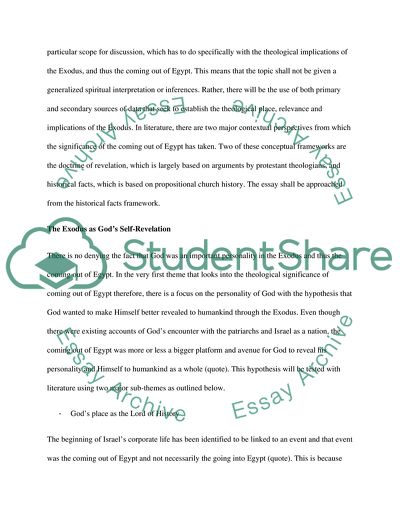Cite this document
(How the Israelites Went to Egypt and Came out of Egypt Essay Example | Topics and Well Written Essays - 3000 words, n.d.)
How the Israelites Went to Egypt and Came out of Egypt Essay Example | Topics and Well Written Essays - 3000 words. https://studentshare.org/religion-and-theology/1812804-hosea-111-i-called-my-son-out-of-egypt
How the Israelites Went to Egypt and Came out of Egypt Essay Example | Topics and Well Written Essays - 3000 words. https://studentshare.org/religion-and-theology/1812804-hosea-111-i-called-my-son-out-of-egypt
(How the Israelites Went to Egypt and Came Out of Egypt Essay Example | Topics and Well Written Essays - 3000 Words)
How the Israelites Went to Egypt and Came Out of Egypt Essay Example | Topics and Well Written Essays - 3000 Words. https://studentshare.org/religion-and-theology/1812804-hosea-111-i-called-my-son-out-of-egypt.
How the Israelites Went to Egypt and Came Out of Egypt Essay Example | Topics and Well Written Essays - 3000 Words. https://studentshare.org/religion-and-theology/1812804-hosea-111-i-called-my-son-out-of-egypt.
“How the Israelites Went to Egypt and Came Out of Egypt Essay Example | Topics and Well Written Essays - 3000 Words”. https://studentshare.org/religion-and-theology/1812804-hosea-111-i-called-my-son-out-of-egypt.


